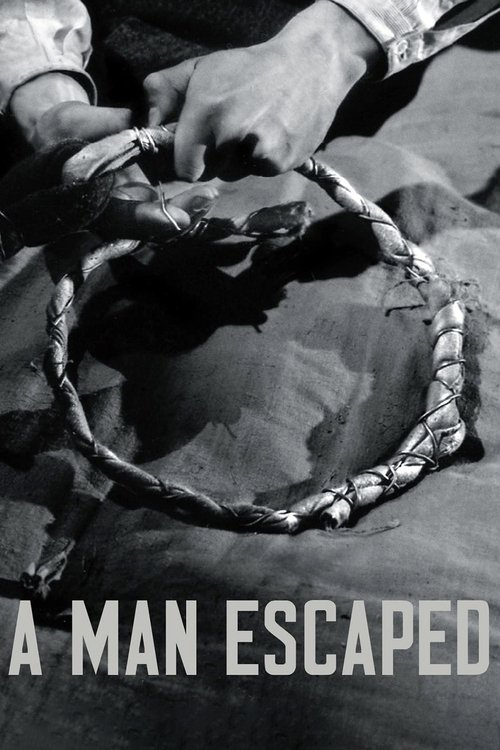
Title: A Man Escaped
Year: 1956
Director: Robert Bresson
Writer: Robert Bresson
Cast: François Leterrier (Fontaine),
Charles Le Clainche (Jost),
Maurice Beerblock (Blanchet),
Roland Monod (Priest of Leiris),
Jacques Ertaud (Orsini),
Runtime: 101 min.
Synopsis: A captured French Resistance fighter during World War II engineers a daunting escape from prison.
Rating: 7.936/10
The Silent Symphony of Solitude: A Man Escaped’s Triumph of Spirit
/10
Posted on July 19, 2025
Robert Bresson’s A Man Escaped (1956) is a masterclass in the art of reduction, a film that distills the prison escape narrative to its existential core. Based on the true story of André Devigny’s escape from a Nazi prison, Bresson’s direction transforms a potentially conventional tale into a meditative exploration of human will, faith, and the tactile essence of freedom. The film’s power lies not in grandiose gestures but in its meticulous restraint, where every sound, glance, and gesture carries profound weight.
Bresson’s direction is the film’s heartbeat. His minimalist approach eschewing melodrama for precision creates a claustrophobic intimacy that mirrors Lieutenant Fontaine’s cell. The camera lingers on Fontaine’s hands as they chip away at his wooden door, turning mundane actions into rituals of defiance. This focus on process over spectacle elevates the film beyond genre tropes, making the act of escape a metaphor for spiritual liberation. Bresson’s use of non-professional actors, particularly François Leterrier as Fontaine, grounds the film in raw authenticity. Leterrier’s understated performance, all quiet resolve and subtle desperation, invites viewers to inhabit his psyche without overt emotional manipulation.
The cinematography, by Léonce-Henri Burel, is a study in economy. The muted palette of grays and shadows, coupled with tight framing, amplifies the oppressive atmosphere of Montluc prison. Yet, moments of light streaming through a barred window or glinting off a spoon become visual prayers, hinting at hope amid despair. The film’s sound design is equally vital. Bresson amplifies everyday noises the scrape of a spoon, the creak of a floorboard into a symphony that underscores Fontaine’s hyper-awareness. Mozart’s Mass in C Minor, used sparingly, elevates key moments without overwhelming the film’s austerity.
If the film falters, it’s in its occasional pacing. The deliberate tempo, while integral to Bresson’s vision, may test viewers unaccustomed to his contemplative style. Some scenes linger longer than necessary, risking detachment where immersion is intended. Yet, this minor flaw hardly diminishes the film’s impact. A Man Escaped is less about the physical act of escape and more about the interior journey Fontaine’s faith, both in himself and something greater, renders the film timeless. Its setting, a Lyon prison under Nazi occupation, adds historical weight, but Bresson’s focus on universal human resilience transcends its context. This is cinema as both craft and philosophy, a testament to the unyielding human spirit.
0
0
